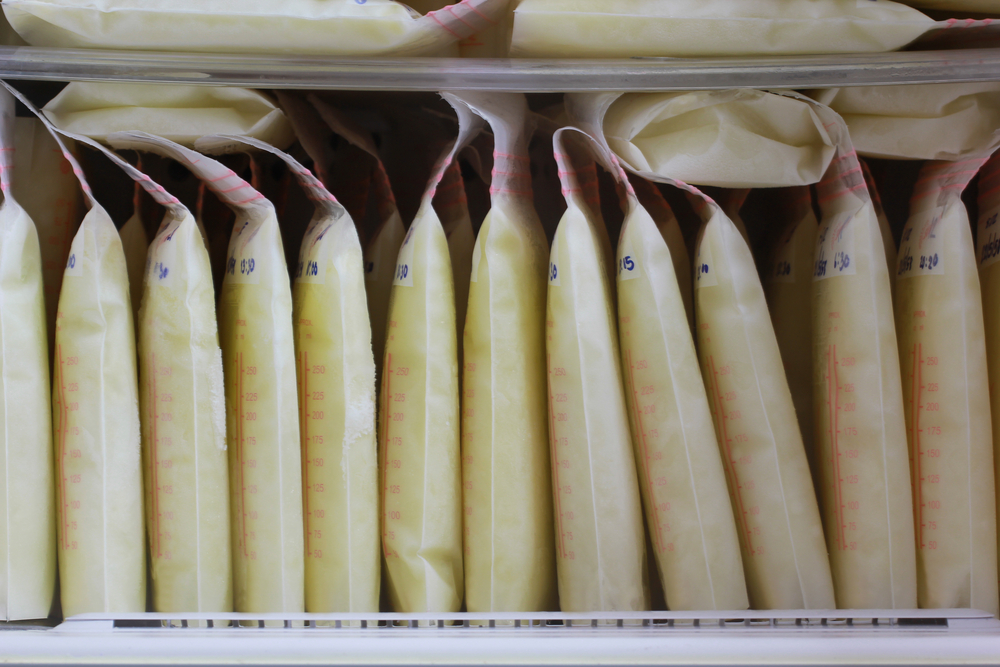
Oregon mom-of-two Elisabeth Anderson-Sierra couldn't breastfeed her second daughter Sophia after a grueling labor. She told People magazine, "My body was just exhausted so she had to have donor milk for the first couple of feedings." That experience inspired her to start donating her own breast milk to other families in need… a lot of it. More than 600 gallons of it!
Anderson-Sierra now spends up to 10 hours a day not only pumping milk, but packaging her breast milk supply, and working with milk banks nationwide to pick up, vet and deliver what she is able to produce, due to hyperlactation syndrome. In essence, her body produces far more milk than now 6-month-old Sophia could ever consume, every day.
According to People, Sophia takes about 20 to 28 ounces of breast milk daily. But her mama's body can make 10 times that, and Anderson-Sierra sure doesn't want what many people call "liquid gold" to go to waste. So she now donates her milk pretty much as a full-time job.
Not that she gets paid. Yes, Anderson-Sierra gets reimbursed for her donations, but she tells People she barely breaks even given the cost of buying supplies to pump, sanitize and freeze her breast milk.
New parent? Sign up for our Parents Daily Babies newsletter!
But this isn't about the money for Anderson-Sierra. She says, "I definitely feel good about being able to help people, but I also think it's kinda ingrained in who I am." She adds, "This is my way of being active in my community and giving back to humanity, and so it's my labor of love."
Could hyperlactation syndrome happen to you? Experts say it's actually relatively common. "Sometimes called ‘oversupply’ in healthy lactating parents, hyperlactation may be experienced more often than previously recognized, especially when pumping is added to an exclusive breastfeeding routine," says Judith Campbell, R.N.C., I.B.C.L.C., Lactation Consultant, Children’s National Health System. "Though sometimes hyperlactation, or over supply, is characterized by friends and family as a fortunate situation, it can actually be quite uncomfortable."
One common cause of it? Getting ready to go back to work. "Due to short maternity leaves and other factors, many parents worry about the potential for under supply and begin to prepare for a return to work by introducing pumping along with breast-feeding during the beginning phase of lactation just after giving birth," Campbell says. "Stimulation by pumping beyond an exclusively breastfed baby’s needs may allow a parent to save milk for later. If they develop oversupply, they will notice a steady feeling of fullness, with an increased pressure to continue or increase pumping frequency for relief. They frequently may leak milk and be at increased risk for developing plugged ducts and mastitis."
If you develop oversupply, working with a lactation consultant can help you step down to a more reasonable supply comfortably. "It would be important to have expert support if a parent desired to decrease milk production comfortably, while avoiding complications such as mastitis," Campbell says.
Donating to milk banks can be one way to deal with an oversupply. Even if you aren't producing at the same levels as Anderson-Sierra, you can still donate any additional breast milk you create.
Melissa Willets is a writer/blogger/mom. Find her on Facebook and Instagram where she chronicles her life momming under the influence. Of coffee.
